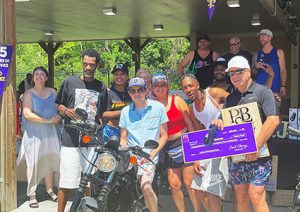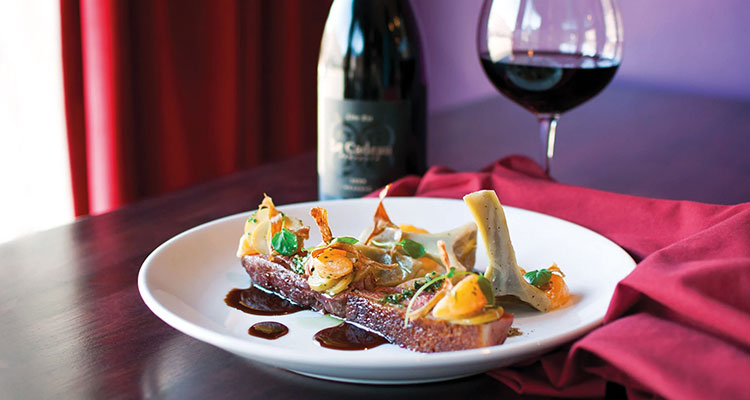Unemployed to employing hundreds: the inspiring story of PB&J Restaurants
When Paul Khoury began PB&J Restaurants (PB&J) in 1987, he couldn’t have predicted where it was going to end up. Back then, he’d just been forced to leave what many would consider to be a dream job: Vice President for a national restaurant group. The buyout that led to his unemployment was headline news – even The New York Times wrote about it.

Little did he know, but this was the moment Paul’s career was about to take off. Rather than dwelling on his loss, he funneled his energy into carving out a future. “I took the little money I had locked up in savings and investments and borrowed $115,000 to start my new life,” he reveals.
It began with a relatively small, 2200-square-foot diner inside a shopping center. “Business was slow initially,” Paul remembers. “But it was just myself, my wife, and my business partner back then. Yet, over time, we began to get some great reviews. Soon enough, Paradise Diner began attracting huge crowds!”
Developers noticed and came looking for Paul. They wanted to know if he and his close-knit team could open new restaurants for them, including Coyote Grill and Grand Street Café.
“Developers really liked us,” he details. “They saw what we were doing, and they knew it had legs – the product was good and the team behind it was even better.”
Service with a smile
Fast forward three-and-a-half decades, Paul and his partners have opened more than 60 restaurants. He admits that he’s often asked about the success of PB&J and how it all came together so well. “But here’s the thing,” he divulges. “There was never really a plan – it just happened!
“A lot of it was being in the right place at the right time; however, the main philosophy behind PB&J that’s made it so successful is quite simple. All we have done is focus on creating great food, offering first-class service, while also maintaining organic growth in terms of sales. Typically, if the first two are prioritized, then the third part should take care of itself.
“Another thing we live by is never saying no,” Paul goes on. “It shows people you care. The first rule of hospitality is: The guest is always right. The second rule of hospitality is: If the guest is wrong, then refer back to the first rule.
“It’s our job to make people happy, and we never want someone to leave our restaurants feeling unhappy. You see, many places focus solely on profit. But that’s the difference between us and others. If we make a ten percent mark-up and make someone happy, then we’re content.
“Since we’re not a public company,” continues Paul, “we don’t have to compromise on our morals to satisfy shareholders. As long as the business survives and we can take care of ourselves and our employees and their families, then it’s a roaring success in my eyes.”
And a success it has been. For 36 years, PB&J has weathered many storms and continued to inspire locals to seek out quality food and service despite ongoing national and global uncertainty.https://foodchainmagazine.com/news/unemployed-to-employing-hundreds-the-inspiring-story-of-pbj-restaurants/
If there’s one thing that can be said about the restaurant sector, it’s that people will always be hungry for the comfort of a lovingly cooked meal served up with a smile. There’s nothing quite like it.
Reflecting over the last few decades, Paul highlights some moments that stick out as particularly poignant. “So much has happened since we launched Paradise Diner,” he notes.
“First there was 9/11, then the 2008 financial crisis, and, most recently, the pandemic. But we got through them. We’ve been quite lucky.”
Silver lining
However, it can’t just be luck. “True,” admits Paul. “I suppose it all goes back to the founding of PB&J. The only reason we exist in the first place – as I’ve mentioned – is to take care of ourselves, our families, and our employees.
“There’s no other reason, and that’s why people have stuck by us through good times and bad. For us, employee loyalty needs to be rewarded. At PB&J, we gift a Harley Davidson motorcycle to all of those who have worked with us for 15 years. In the last two decades, we’ve gifted 116, and in 2023 we’re due to hand over ten more.”
As Paul explains, employees mean a lot to him and the wider business. Therefore, on Independence Day each year, PB&J invites all its employees to Worlds of Fun amusement park for a day out in the sun to celebrate the group’s successes.

During the day, Paul will get up and talk in front of 1800 employees, before gifting the motorcycles to those that have hit the 15-year mark. It reminds him just how many people are dependent on PB&J. “It’s the most rewarding part of my job, for sure,” he confesses. “I look forward to it every year.”
Currently, PB&J is running several tried-and-tested concepts. First, there’s Burnt End BBQ for brisket, pork ribs, hickory pit beans, and much more. It’s classic BBQ fare served up with style.
Then there’s Yayas Eurobistro, which, as the name suggests, offers food from across the continent – think wood-fired pizzas and flatbreads, homemade ravioli, sea scallops, and filet mignon. Variety is the spice of this European-inspired dining experience.
Finally, PB&J serves up top-notch burgers and brews through Red Robin, a chain of fast-casual restaurants originating in Seattle, Washington. By taking the humble beefburger and turning it into a bite worth writing home about, Red Robin has secured a nationwide reputation for delivering the goods.
More recently, PB&J has begun a to-go service for the Kansas City Airport. “We do all the grab-and-go items across the site, which is something we’ve never done before,” Paul says. “In all, we’re selling up to 10,000 items – sandwiches, salads, baked goods – a week at the airport.
“Though it’s been a bit of a learning curve, it’s going really well. Trying something new is really interesting, especially when you’ve been in business as long as we have. To that end, I’m proud to announce we’re also partnering with local groups to open a new French café and bistro concept in Parkville, KA and a sports venue called The Legends in Kansas City.”
Big plans are being drawn up at PB&J. In years to come, Paul intends for his son to take over the business. “We’ve been really lucky so far, and we’ve been able to give employees a great quality of life,” he concludes. “We want to keep that going. It’s really that simple.”
Paul has talked a lot about luck throughout our conversation. But perhaps the biggest stroke of luck was, ironically, losing his job in 1987. Indeed, his story – and that of PB&J – serves as a reminder that there’s always a silver lining to be found. You just have to put your mind to it.
